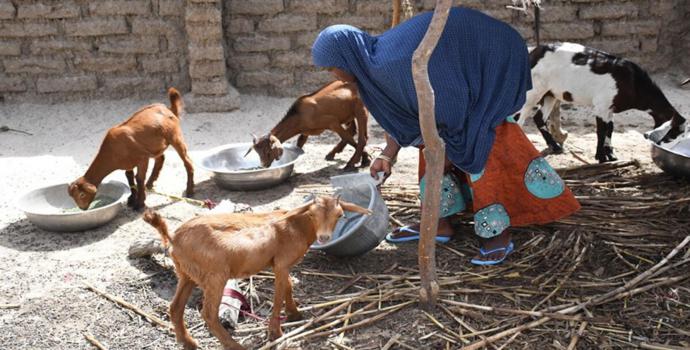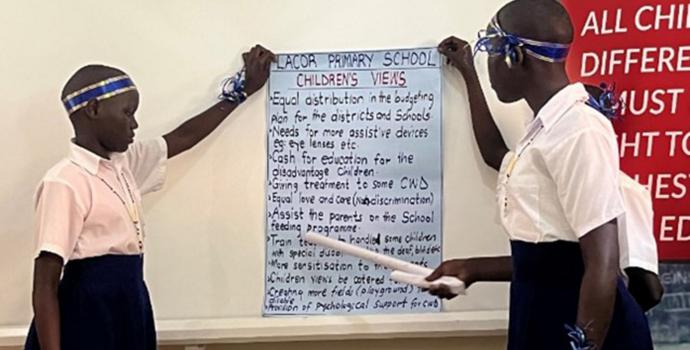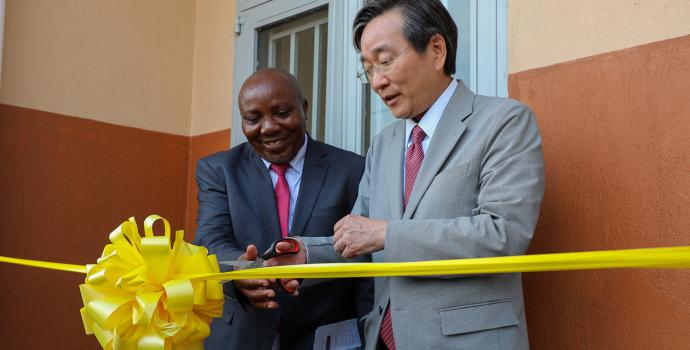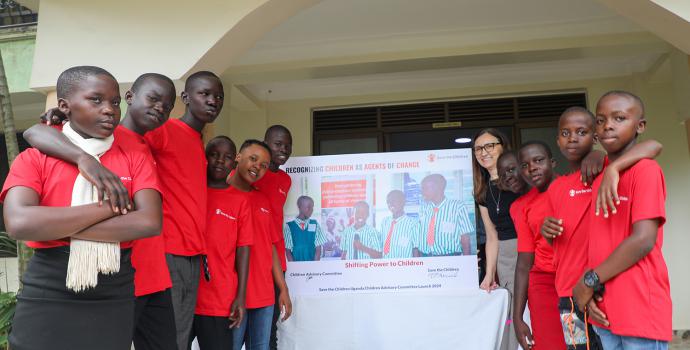Goats project to boost nutrition of children, mothers in Karamoja

This is a photograph from a similar project being implemented in Nigeria.
Karamoja sub-region in North Eastern Uganda has the highest poverty level in the country at 60.2% compared to the national average which is 21.4% according to Uganda Bureau of Statistics.
The National Food security and nutrition status reports produced using the Integrated Food Security Phase Classification (IPC) tool have overtime indicated that Karamoja has the highest food insecurity and malnutrition levels in Uganda due to factors related to inadequate food, poor dietary diversity, poor hygiene and sanitation, and disease.
In this sub-region, 35% of children less than five years are stunted due to chronic malnutrition and 28% of children in this age group are underweight (low weight for age), the highest proportion in the sub-region the Office for the Coordination of Humanitarian Affairs report indicates.
Save the Children with support from Save the Children Korea, is working to ensure that the livelihoods of children and mothers in Karamoja sub-region improve. We will for three years (March 2021 to February 2024) implement a nutrition and livelihoods project named Karamoja GOATS in Moroto District, Karamoja sub-region. GOATS in this case is Giving of Ownership and Assets To prevent Stunting in Karamoja and it is representative of the theme of the project; child poverty, health, and nutrition.
The project will focus on the two most affected sub-counties in Moroto; Rupa and Tapac because the child poverty incidence in this two ranges from 56.1% to 76% as indicated in the Poverty Maps of Uganda.
The implementation
By 2024, the project hopes to have contributed to improved secure access to nutritious and safe food for agropastoral households in the sub-region. It is estimated that the project will benefit 3,772 households with pregnant and lactating mothers, and those with children under 5 years; the critical age for addressing malnutrition.
The beneficiaries will form groups of 10-15 participants and will receive goats which they will pass on to each other through the send-a-goat approach. The goats are intended to produce milk which mothers will feed their children to supplement breastmilk.
The beneficiaries will also receive training on goat husbandry including housing, feeding, watering, disease and parasites management, breeding and marketing basics.
Additionally, the women will receive seeds that they will use to start up kitchen gardens to boost the consumption of highly nutritious vegetables in their homes. The seedlings that will be given include cowpeas, amaranth (doodo), onions and pawpaw fruit trees.
The implementation of this project will be done by working with community/cultural leaders who will be engaged through community dialogues and other innovative approaches that SCI has successfully applied in Karamoja such as the trigger videos and social behaviour change information wagons targeting homesteads.
By 2024, the project aims at having achieved reduced average household food insecurity score among agropastoral households in Moroto and reduced prevalence of stunting among children under five among agropastoral households in Moroto district.




